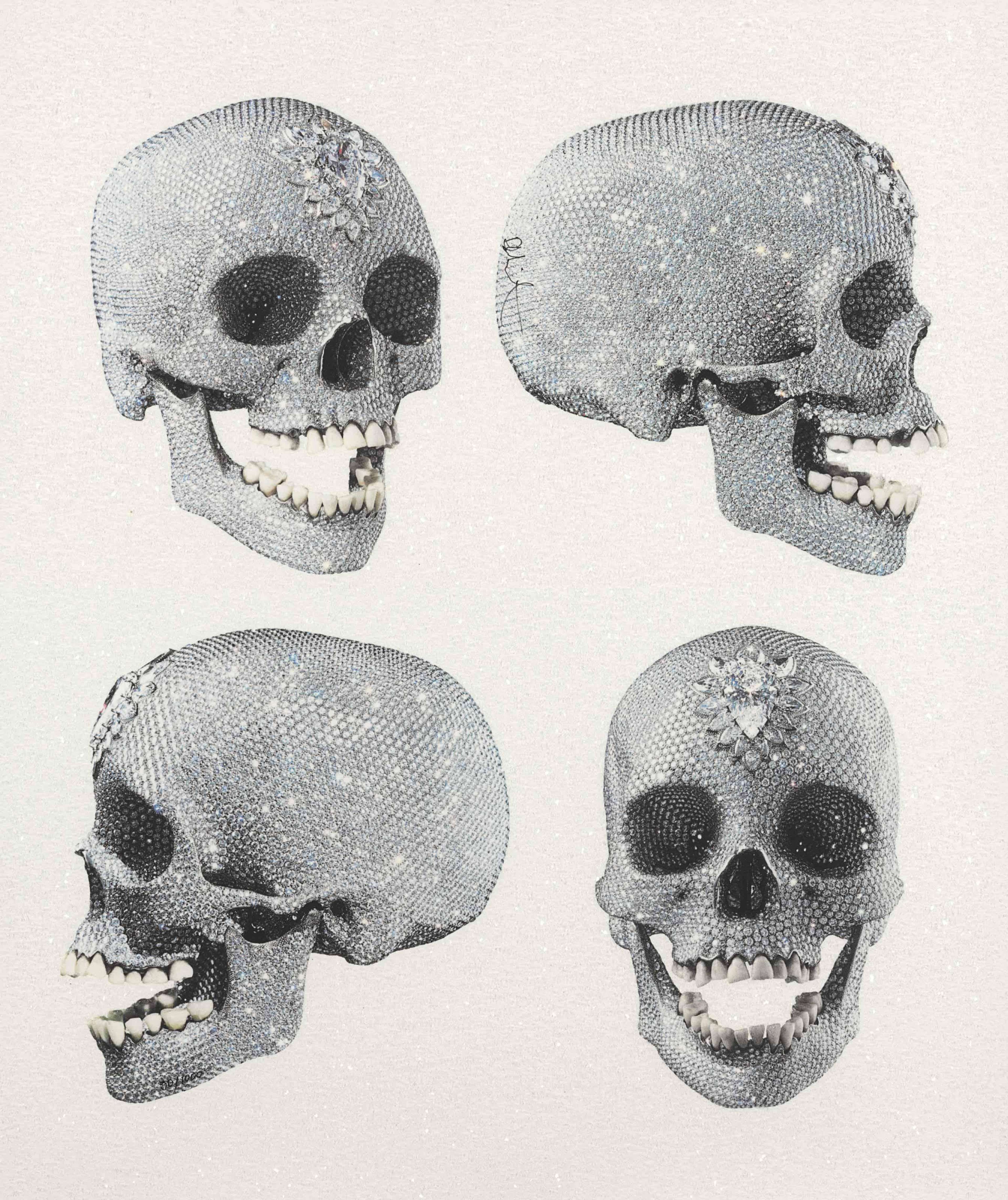 Barcode © Banksy 2004
Barcode © Banksy 2004Market Reports
The transformative wave in art market innovation is being led not by its traditional custodians, but by pioneers with fresh perspectives. These visionaries, hailing from diverse backgrounds such as finance, technology and e-commerce, are redefining the process of art buying, selling, and collecting. Their approach, blending cutting-edge technology with a commitment to transparency, is democratising an industry once shrouded in exclusivity. These disruptors, armed with novel insights and tools, are breaking down barriers and ushering in a new era of accessibility and efficiency in the art world.
Why The Art Market is Being Revolutionised From the Outside
The art market, long seen as a bastion of tradition and exclusivity, is undergoing a radical transformation; not so much from within, but from outside forces. In an era of rapid technological advancement, disruptors – equipped with cutting-edge technology and a commitment to transparency – are redefining what it means to engage with art. Historically, the process of buying, selling, and authenticating art was often cumbersome and clouded by a lack of clear information. This created barriers for new collectors and limited the market's growth potential. Tech disruptors, often outsiders with fresh eyes and innovative tools, observed the art market's inefficiencies and saw opportunities where others saw immutable traditions. These pioneers were not bound by the art world's conventional norms, but instead brought experiences from diverse sectors like finance, technology, and data analytics, applying these perspectives to revolutionise the art market.
One of the key areas of transformation is transparency. Through the use of advanced algorithms, blockchain technology, and comprehensive data analysis, these players offer unparalleled clarity in art valuation and authentication. They provide precise, data-driven insights that were previously unimaginable in the art market, democratising information that was once the preserve of a handful of dealers and experts. Moreover, tech-driven platforms are making the art world more accessible: by leveraging the power of the internet and digital tools, they are breaking down geographical and social barriers, allowing a wider audience to participate in the art market. This not only expands the market's reach but also introduces new voices and perspectives, enriching the art world's diversity.
 MyArtBroker © 2023
MyArtBroker © 2023MyArtBroker: Championing Access & Transparency in the Secondary Art Market
In an industry steeped in tradition, MyArtBroker has distinguished itself through innovation, disrupting the art world with groundbreaking technology and unparalleled transparency. It was co-founded by Joe and Ian Syer, brothers and print collectors with over 15 years of experience. Their journey from collectors to disruptors in the art market is a story of passion meeting innovation. The Syer brothers, with their extensive background in collecting, recognised the challenges and limitations of the traditional art market: a lack of accessibility, transparency, and data-driven insights. In response, they created MyArtBroker, an online marketplace aimed at simplifying and demystifying the art collecting process.
Central to MyArtBroker's revolutionary approach is SingularityX, an algorithm developed in-house that stands as a testament to the power of data in transforming the art world. SingularityX goes beyond the conventional parameters, like auction results, to analyse a comprehensive array of data points. This results in highly accurate valuations of artworks, offering an unprecedented level of insight to collectors. This groundbreaking algorithm does not just provide valuations; it acts as a market maker, effectively bridging the gap between buyers and sellers.
By doing so, SingularityX tackles one of the art market's most enduring issues – opacity. For years, the art world has been shrouded in secrecy, with critical information often accessible only to a select few. MyArtBroker, through SingularityX, disrupts this status quo, bringing a level of transparency and accessibility that aligns more closely with modern financial systems than traditional art market practices. The impact is far-reaching, democratising access to art market data and empowering collectors. MyArtBroker is a vivid illustration of how an outside perspective, rooted in a deep understanding and love for art, can redefine an industry.
 © Convelio / The Convelio Team: Building the logistics backbone of the art world in the UK and internationally
© Convelio / The Convelio Team: Building the logistics backbone of the art world in the UK and internationallyConvelio: Redefining Art Logistics with Technology and Efficiency
Convelio tackles one of the industry's most overlooked yet critical aspects: logistics. Founded by Edouard Gouin and Clément Ouizille, Convelio was born from a profound frustration with the outdated art shipping practices. With their e-commerce backgrounds, Gouin and Ouizille brought a fresh perspective to an industry traditionally resistant to change, particularly in logistics.The duo identified three major challenges in the sector: the lack of immediate pricing in an increasingly digital art world was creating a disjointed customer experience, the lack of competitive pricing and an overreliance on multiple logistics companies for worldwide shipping, which was inefficient and cumbersome. Convelio's innovative approach simplifies these, providing a one-stop-shop with instant, competitive rates and extensive geographical coverage.
Over the past eight years, Convelio has revolutionised art logistics by developing and implementing technological tools such as sophisticated order dashboards and tracking systems. These advancements ensure a balance between quality and cost-effectiveness, and the transformation from manual, spreadsheet-based systems to sophisticated algorithms underlines Convelio's commitment to innovation. These algorithms consider all necessary parameters to generate instant pricing. Today, 90% of orders are efficiently managed through their algorithm, demonstrating its effectiveness. Their transparency in pricing not only assists collectors in making informed decisions but also compels other market players to stay competitive. This influence extends beyond logistics, shaping the overall dynamics of the art market.
Redefining the Art Market: A Vision for Tomorrow
It is evident that the influx of fresh input from other industries into the art world is not just a trend but a transformative movement – an increasing number of companies, led by visionaries from diverse backgrounds, exemplify this seismic shift. The key to this revolution lies in the prioritisation of transparency and efficiency. Their approaches, rooted in technology, data analytics and e-commerce, are revolutionising an industry once characterised by opacity and exclusivity. These new players are democratising the process of buying, selling and collecting art, making it more accessible and understandable to a broader audience. By leveraging cutting-edge technology, they are breaking down barriers that have long hindered the art market's growth and accessibility.
This movement goes beyond mere technological advancement; it is about changing the ethos of the art world. It is a transition from a market controlled by a few gatekeepers to a more inclusive and fair environment. The implications are profound: artists gain wider exposure, collectors access more information and options, and the market itself becomes more vibrant and diverse. As we look to the future, it is clear that the integration of technology and fresh perspectives will continue to drive innovation in the art market. These changes promise a more transparent and open art world, aligning with the evolving expectations of a modern audience. In this new era, the art market is not just being redefined; it is being replenished, offering exciting possibilities for all who participate in it.








